Joe Gideon and the Shark - Interview
by Benjamin Howarth
published: 24 / 1 / 2013
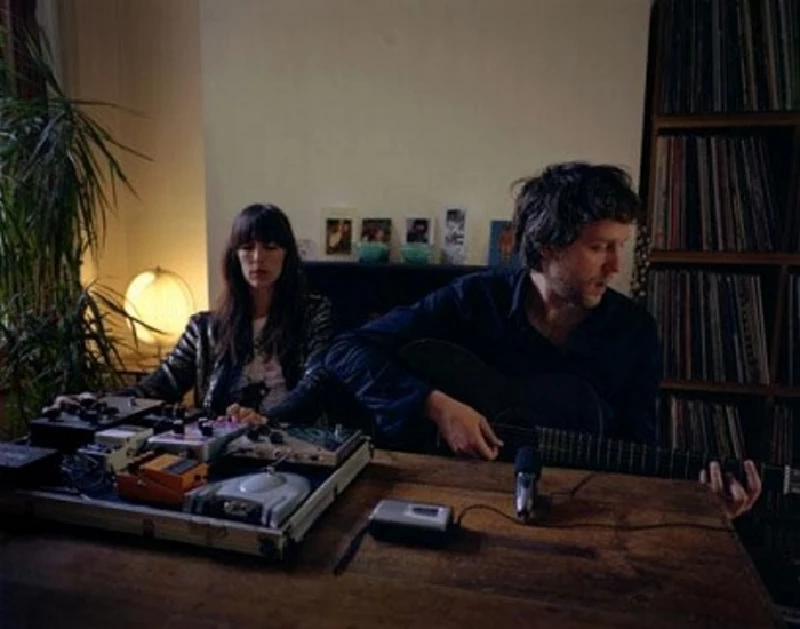
intro
Ben Howarth chats to Joe Gideon, the front man with London-based alternative rock duo Joe Gideon and the Shark, about his band's long-awaited second album, 'Freakish', and their increased confident edge
I still vividly remember the first time I saw Joe Gideon and the Shark perform live. It was in early 2006, and their previous band Bikini Atoll had only recently broken up. Pennyblackmusic had hosted Bikini Atoll at our bands nights, then held in the Spitz in East London, and I was expecting something similar from this new duo, given that it was the same songwriter. Instead, from Joe Gideon we got partly spoken narratives, delivered with a wry grin and a sharp comic timing, performed over fiery blues, and from his sister Viva (‘the Shark’) we got furious drumming, delivered while also strumming a second guitar and playing piano at the same time. A sight to see. The band’s own description of their music – ‘Alien Blues’ – is perfect. There was a stampede to the merchandise table after the gig, as we rushed to grab a copy of their demo CD, which they gave away free of charge. Two years of increasingly well attended live performances in and around London followed, before the pair released their debut album ‘Harum Scarum’ to deservedly glowing reviews. It remains one of my favourite albums, both a reminder of the excitement of hearing such a great band long before they were signed, and a compelling listen of itself. Back after three years with a new album, 'Freakish', once again released on Bronzerat Records, fans of Joe Gideon and the Shark will be pleased to hear that not too much has changed. The songs are still sharp bursts of energy, with witty and compelling half-spoken lyrics, hypnotic percussion and carefully layered musical textures. The main change is a slightly denser sound, and an increased use of synthesiser, which takes the band closer than they’ve been before to pure pop – while we also get two lead vocals from Viva. A week after the album’s release, I spoke to Joe Gideon, as he was preparing to officially launch the album with a show at Rough Trade East later that week. “There was a long gestation getting it together”, he tells me, “Viva and I did mostly all the work on it before we went to the studio and then I suppose in the end it was a collaboration between us and the producers, who had their own vision. In some ways it feels like I am listening to the album for the first time myself, now that it is all packaged and we have got the artwork done. PB: Why was there a three year gap between the two records? JG: There were a huge amount of reasons, I must say. A lot of it to do with our family – personal issues. There were also issues about what songs should go on the album, and that took a while to sort out. Viva wanted my lighter songs to go on the album. We have been through a rough time in our family actually. Our father passed away, and it took us a long time to recover from that. So the music was affected by that as well, and it took us a long time to figure out what we would do with this album. PB: I’m sorry to hear that. Were you always sure that you would do another album? JG: To be honest, we felt that we owed it to our dad, because he was such a massive influence on us to do music in the first place, and we felt that we really owed it to him, in a way, to finish it. He was our driving force to finally get it done. PB: He worked in the music industry as well.Am I right? JG: Yeah, he was a manager. PB: So tell me about the producers, how you met them and started working with them… JG: Well, one of them is Viva’s husband actually – Mark Cleveland, the drummer in the Archie Bronson Outfit. The other guy is this chap called Kristian, who goes by the moniker Capital K. He was running a studio near Hampton Court, on this little island – to get to it you had to cross this little island. It was quite an exciting studio. Mark had met him and they had struck up this great working relationship, and around the time that we were just kicking out some new songs. They got very excited about getting us as a project for themselves, and everything fell into place, and it sounded like a great idea at the time. We did a lot of it in one stint, four days of vocals and guitars and drums. In fact, all of the vocals I did in one day – sort of a ragged day for me. I started off with a clear voice, and by the end things were getting a bit rough around the edges. But I was pretty happy with how the vocals came out, so its quite an interesting way of doing it actually – all in one day. And then, a heck of a lot of time was spent with Viva, because she was doing the lion's share of the music – all of the keyboards and all the add-ons. Then a massive amount of work went into the mixing. PB: How much of it was done by the producers, and how much was planned in advance. JG: I would say that about two thirds of it is how we had it when we went into the studio and a third of it was their input – for the overall picture of the songs. PB: Have you had much feedback on the new album? I’ve noticed that you’ve had a few good reviews already. JG: Yeah, a few good reviews. I actually liked some of the reviews… there is a 'Q' review that I actually think is a really good way of describing the album. It was described as “Dadaist fun”. I looked up what Dadaist meant, I should have known, and that seemed like a really good way of describing the album. PB: That’s an important aspect to your lyrics, which is fairly unusual, is that you are not afraid to use humour and make them funny. JG: More and more so. There’s what I mean when I say I agree with the Dada comparison, that feeling that I’m not afraid to have a nonsense in there, but also underneath that there are some more serious thoughts. PB: The lyrics always sound like you have very carefully reworked and reworked them… JG: Oh yeah, I will always very happily take an age over each lyric if I have to. I never feel like they should just be knocked out. You know, if I feel like I am not quite hitting it with the lyrics. I actually enjoy inhabiting the world of the song until I feel like it is ticking all the boxes in my head. So a song like 'I’m Ruined', I could quite happily have stayed in that world for weeks. I was so enjoying it. I had just reams of lyrics for that. There are some writers that knock out so many songs. You always hear people talking about bringing forty songs to the studio. We tend to just edit out all that crap before we get anywhere near the studio. Also it’s always an evolving process with these songs. It always feels like I have only written nine songs in my life bizarrely. PB: With Bikini Atoll, you didn’t have any humour, the songs were very different. At what point did you have the nerve to write in what is an unusual way – with a much greater risk, actually, that it might not work? JG: I think it was the fact that I wasn’t confident enough. When I was asked what my songs in Bikini Atoll wee about, I never knew what to say. They had these abstract concepts. It was a sort of sixth-form college attempt at a William Burroughs cut-up style, I wasn’t happy with it at all. So I needed to be able to write something that explained itself, without me needing to do the explaining. PB: Is it fair to say that the point when Bikini Atoll stopped, and you started Joe Gideon and the Shark, was the point where you start writing music you are happy with? JG: Yeah, that’s exactly the point. Though I suppose, had Bikini Atoll had stayed together, that change in my songwriting would have happened. So it wasn’t the fact that we had become Joe Gideon and the Shark which meant that my songwriting changed. It would have happened anyway. It was a collusion of events. One as trite as having a Fender Twin Silve Face amp. I finally had a good amp. Just to play that with my guitar is such a joy, and that combined with just a drum, I didn’t want to flood it with other stuff. So, suddenly, there was just some power with singular instruments. But we also had the sensibility that we had just come from being in a four piece band, and I think that mindsight is what gave it its broader feeling. Like the song, 'Anything You Love That Much', could easily be a five piece band, in the way that it gets cinematic at the end. That, and the eternal quest to sing with an English accent. If you listen to all the Bikini songs, I sing with a totally American accent, I can’t even recognise my voice. It slightly embarrasses me. So I’m determined to maintain Englishness. PB: How would you compare this record to someone reading Pennyblackmusic who has heard 'Harum Scarum', and is thinking of buying this one? JG: Phew… that’s a tough question to answer. Because I’m just digesting some of the reviews myself. 'Harum Scarum' was definitely more raw and punky. It was recorded on just a few mics in a barn, though I would never reduce it to just being "plug it in and see what happens", as the engineer ‘Head’ was great and really knew what he was doing. But this album definitely has a fuller sound, and it sounds like more people were involved in making it. But also, there was more space in 'Harum Scarum'. I think you get the sense that with this one we wrote a lot of the songs in an attic, whereas 'Harum Scarum' was in a barn. So perhaps it is a bit more claustrophobic. Personally, I was very determined to keep this idea of how we describe our music, the idea of ‘Alien Blues’. I think that description still applies. But, I must admit, Viva is singing through a vocoder (laughs). There is just no escaping that flat. PB: She hadn’t sung lead vocals before had she? JG: She had sung backing vocals before, and she had always been dying to sing a track actually. I think since that album, she’d actually got a lot more confident in singing, and she ended up singing two. One of those songs I wrote, but the other song – ‘Poor Born’ - is kind of a collaboration, as the lyrics were gifted to us by a band called Dead Moon. We were really keen to do a cover, so that’s how that song came about. It was attempt at doing a cover, but we ended up completely changing it. So, in the end, we found out we’re not very good at doing covers. PB: Had you played the songs live at all before you went into the studio? JG: A few of them, just a few of them actually. We had a burst of creativity in the month leading up the recording, where a lot of new songs came about – such as 'You, The Pole and the Rastafarian'. So, maybe three or four of the songs we have been playing live. All the rest were written just shortly before the recording. PB: Whereas, you had been playing most of the songs on the 'Harum Scarum' album for a couple of years before recording them. What difference does it make if you’ve not played a song live before recording? JG: Actually, 'Harum Scarum' was a great learning experience for us. You’re right, we were playing a lot of those songs live for a long time. But the song 'Harum Scarum' and also 'Kathy Ray' were written pretty much during the recording session, and they came out sounding pretty fresh and great. You really wouldn’t know it from the performance, I don’t think. It wasn’t like we had to get them bedded in. So I think that some bands do have to do that, but what I mean by learning experience, was that I think we found that we could be inspired during the process. We didn’t need to have played the songs repeatedly beforehand for them to work. For the most part, I write the guitar parts and the lyrics, and then Viva comes up with all the instrumentation. But, the song 'Daughter of a Loony' – its called 'DOL' on the album – we learned off the cuff, while we were playing together, and I think that works really well. That was really fun. And we did that on some songs on this album, where we just got together and played. A song like ‘Snake Candy’, I think that was a great collaborative effort. PB: What are your immediate plans, now that the album has been released? JG: We’re planning to do lots of touring – we’ve found out that the album is going to be released in Australia, so we would like to go over there. We’d also planning to do some more shows with the Jon Spencer Blues Explosion. We did some shows with them last year and they were really great. We also have a video coming out for ‘Poor Born’. A pretty whacked out video. PB: You’ve done a lot of support slots in recent years… JG: Well, it depends who the band is for. I think if you get asked to support a band like Jon Spencer Blues Explosion, you can’t really say no. I totally love that band. The people we’ve been supporting, it hasn’t been crazy stuff, it has always been bands that we think fit with the kind of music we want to do. And also, they have tended to be bands that have audiences that are way more massive than ours. So it always just seems like a good idea. And there is also a limit to how many headline shows you can do as well, I suppose. We are planning to do some headline shows this year, obviously, on the back of this record. But by the end of this year, those headline shows will be drying up I imagine. So then you need other ways to play live, so we’ll be looking for other bands to play with. PB: I remember seeing you play at the Kilburn Luminaire, you were playing with Sons and Daughters, and I didn’t even know you were going to be on the bill. I remember thinking then that you are an ideal support band, because you’re live performance is so striking. You don’t need to know the songs already to enjoy it. JG: I think we’re the perfect support band, though I shouldn’t really say that. Primarily because of what you say, but also because we occupy the front of the stage. So then the headline band don’t have to set up anything after us. PB: Thank you.
Picture Gallery:-
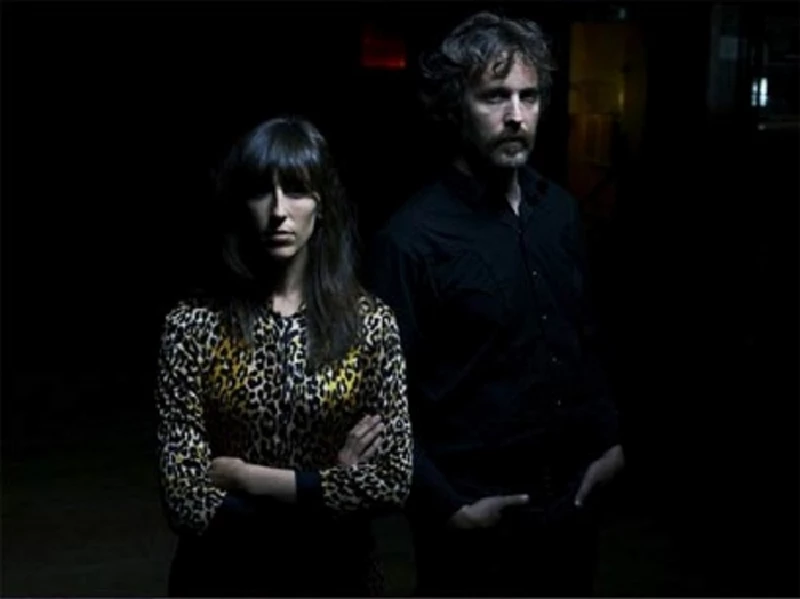
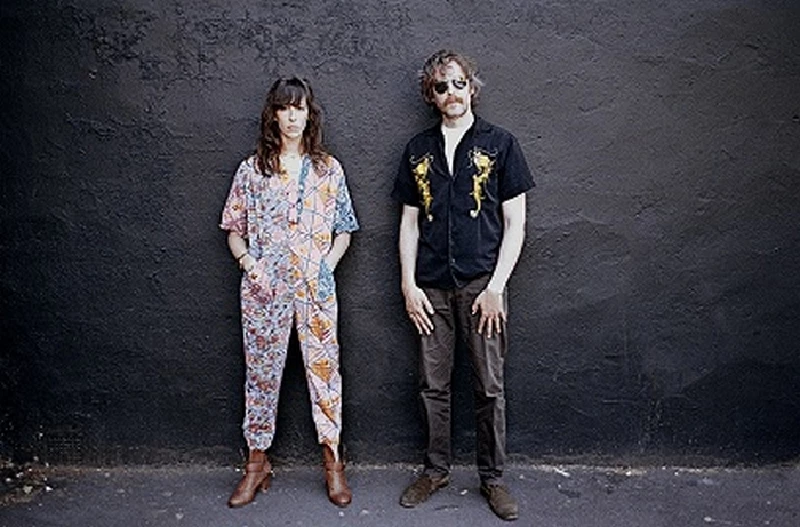
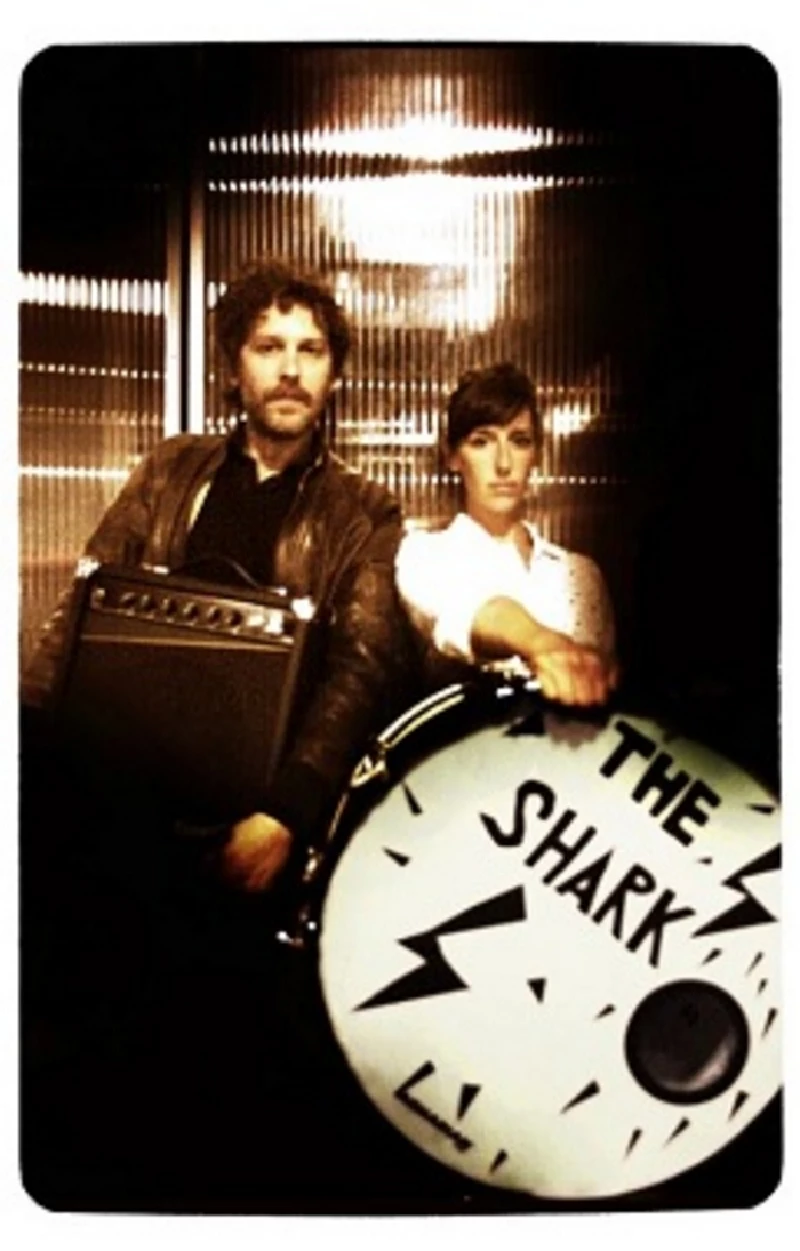
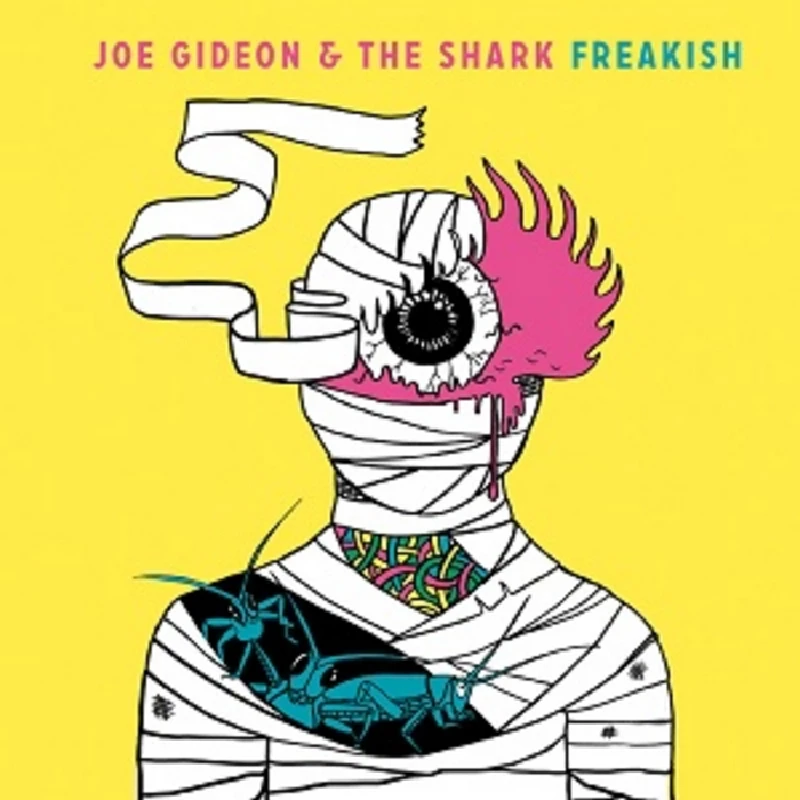
interviews |
|
Interview (2009) |
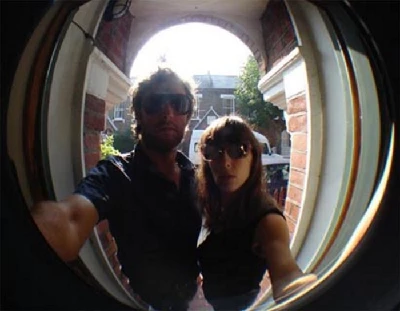
|
| Sarah Johnson speaks to Joe Gideon from London-based duo and former Pennyblackmusic Bands Night band Joe Gideon and the Shark about his group's long awaited debut album, 'Harum Scarum' |
| Interview (2007) |
live reviews |
|
Borderline, London, 26/3/2009 |
| At a homecoming gig at the Borderline in London at the end of a British tour to promote their debut album 'Harum Scarum', Sarah Johnson watches sibling duo Joe Gideon and the Shark completely amaze their audience with their unique brand of alternative rock |
reviews |
|
Harum Scarum (2009) |
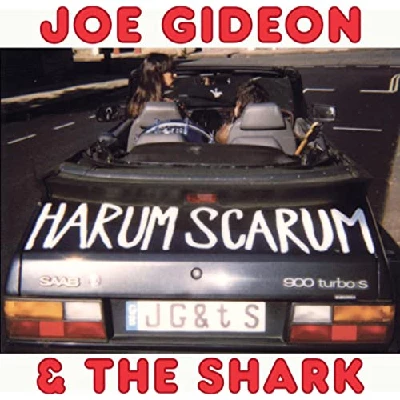
|
| Consistently inventive and atmospheric debut album from London-based duo Joe Gideon and the Shark, which captures all the energy and power of their live shows |
most viewed articles
current edition
Carl Ewens - David Bowie 1964 to 1982 On Track: Every Album, Every SongBathers - Photoscapes 1
Colin Blunstone - Thalia Hall, Chicago, 16/7/2025
John McKay - Interview
Armory Show - Interview with Richard Jobson
Visor Fest - Valencia, Spain, 26/9/2025...27/9/2025
Billie Eilish - O2 Arena, London, 10/7/2025
Bathers - Photoscapes 2
Editorial - July 2025
Sir Tim Rice - Interview
previous editions
Heavenly - P.U.N.K. Girl EPOasis - Oasis, Earl's Court, London, 1995
Trudie Myerscough-Harris - Interview
Pixies - Ten Songs That Made Me Love...
Simon Heavisides - Destiny Stopped Screaming: The Life and Times of Adrian Borland
Beautiful South - Ten Songs That Made Me Love...
Prolapse - Interview
Boomtown Rats - Ten Songs That Made Me Love....
Blues and Gospel Train - Manchester, 7th May 1964
Donovan - Ten Songs That Made Me Love...
most viewed reviews
current edition
Amy Macdonald - Is This What You've Been Waiting For?Sick Man of Europe - The Sick Man of Europe
Alice Cooper - The Revenge of Alice Cooper
Phew, Erika Kobayashi,, Dieter Moebius - Radium Girls
Lucy Spraggan - Other Sides of the Moon
Blueboy - 2
Cynthia Erivo - I Forgive You
Davey Woodward - Mumbo in the Jumbo
Lapsley - I'm a Hurricane, I'm a Woman In Love
Philip Jeays - Victoria
related articles |
|
Joe Gideon: Interview (2016 |
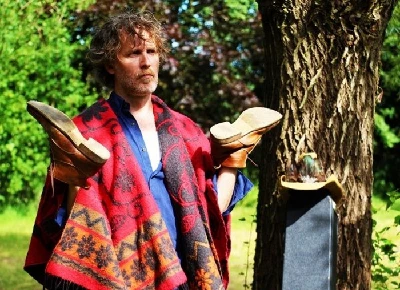
|
| Former Bikini Atoll and Joe Gideon & The Shark front man Joe Gideon speaks to John Clarkson about his debut solo album, 'Versa Vice', which he has recorded with Jim Sclavunos from Nick Cave and the Bad Seeds |
Pennyblackmusic Regular Contributors
Adrian Janes
Amanda J. Window
Andrew Twambley
Anthony Dhanendran
Benjamin Howarth
Cila Warncke
Daniel Cressey
Darren Aston
Dastardly
Dave Goodwin
Denzil Watson
Dominic B. Simpson
Eoghan Lyng
Fiona Hutchings
Harry Sherriff
Helen Tipping
Jamie Rowland
John Clarkson
Julie Cruickshank
Kimberly Bright
Lisa Torem
Maarten Schiethart